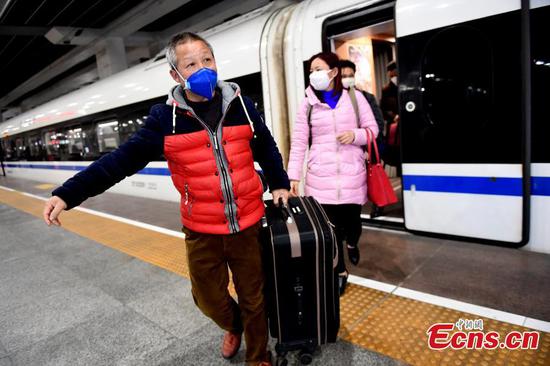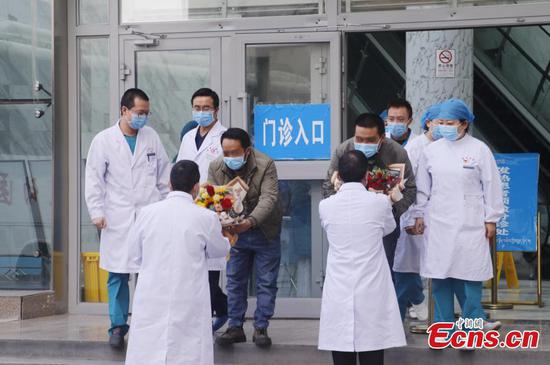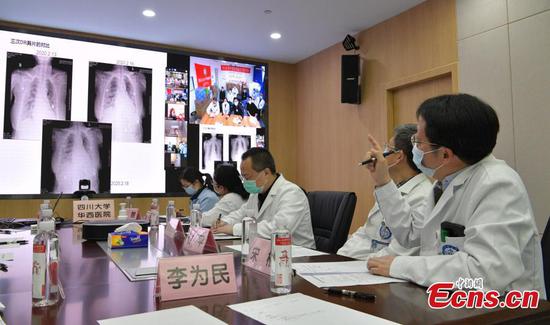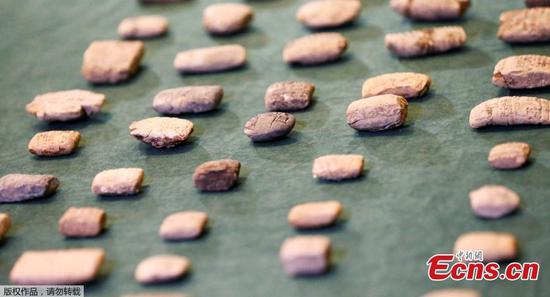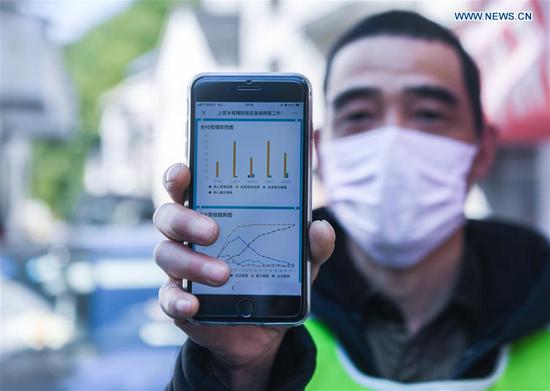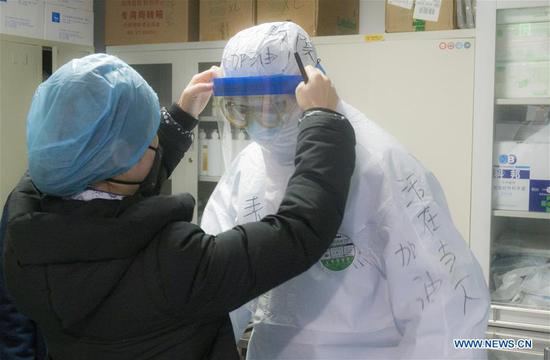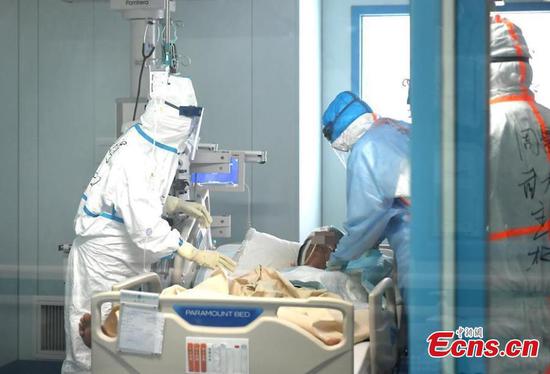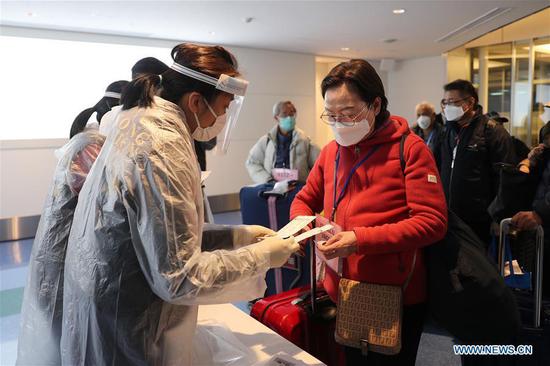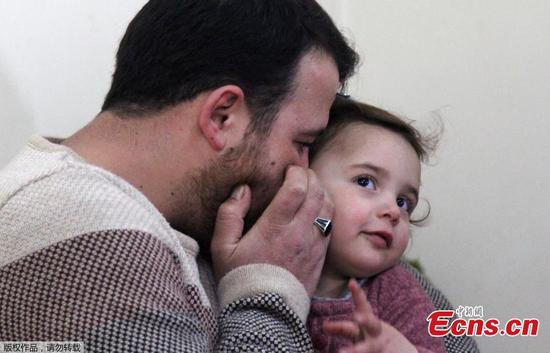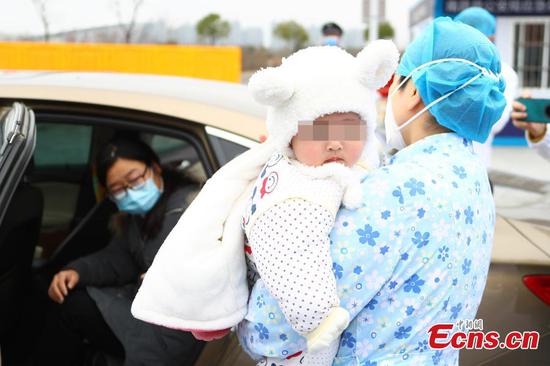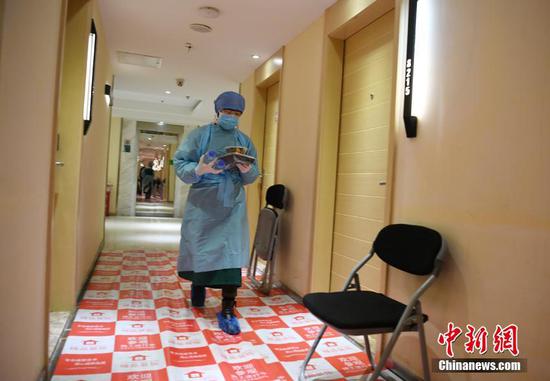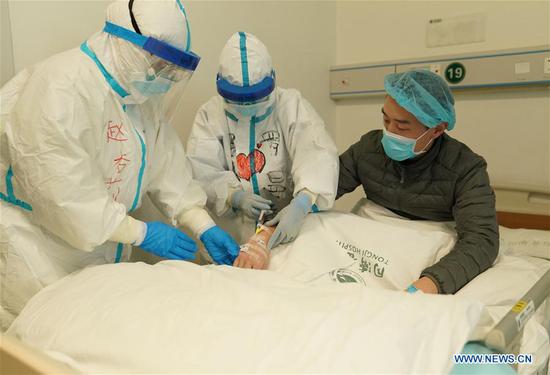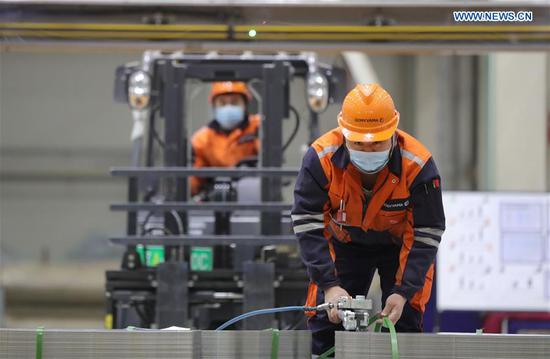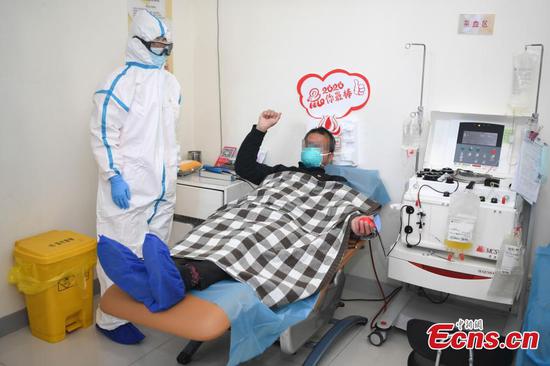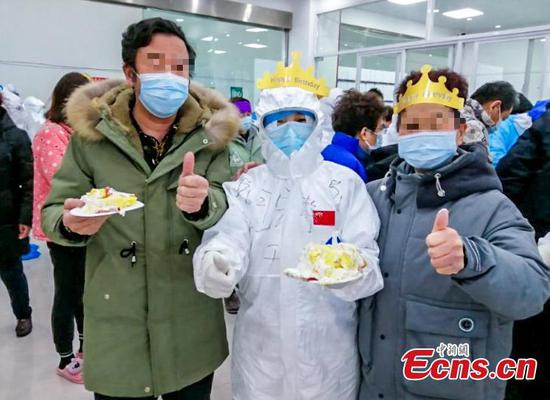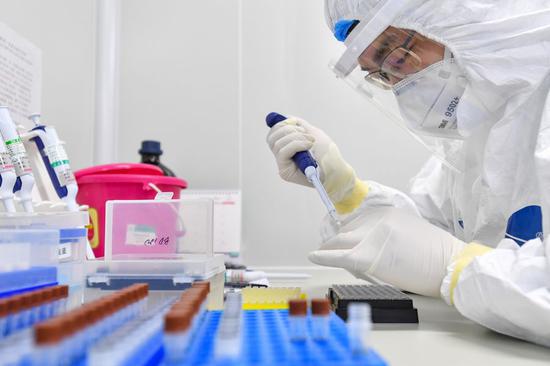
Medical worker Feng Limin makes the testing reagent at the Diagnostics Virology and Transformation Center of the Guangzhou KingMed Diagnostics Group Co., Ltd. in Guangzhou, south China's Guangdong Province, Feb. 18, 2020. (Xinhua/Liu Dawei)
Chinese researchers have released the first pathology report on the novel coronavirus disease (COVID-19), analysing its impact on a patient's lungs, liver and heart by studying the biopsy samples at autopsy.
The samples were taken from lung, liver and heart tissue of the body of a 50-year-old man, who was hospitalized on Jan. 21 and died 14 days later, according to a case report published by the Lancet.
The patient was admitted to a fever clinic with symptoms of fever, chills, cough, fatigue and shortness of breath, and received supplemental oxygen therapy as well as antiviral therapy with interferon alfa-2b and lopinavir plus ritonavir, said the report by a research team from the Fifth Medical Center of the Chinese PLA General Hospital.
Lung samples showed that the patient had suffered from the acute respiratory distress syndrome (ARDS), with the pathological features greatly resembling those in SARS and MERS coronavirus infection, the report said.
The liver tissue showed moderate microvascular steatosis and mild lobular activity, but no evidence indicated that the injury in the liver was caused by the COVID-19 infection or by the drugs, it said.
There were no obvious histological changes in the heart tissue, showing that the disease might not directly impair the heart of patients infected with the COVID-19, it said.
The report agreed that lymphopenia, as a common feature in the COVID-19 patients, might be a critical factor associated with disease severity and mortality.
It also suggested that the timely and appropriate use of corticosteroids together with ventilator support should be considered for the severe patients to prevent ARDS development.
These findings can provided new insights into the pathogenesis of the COVID-19, which may contribute to improve the therapeutic strategies for similar severe patients and reduce mortality, it said.









